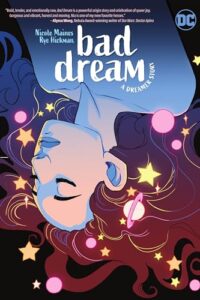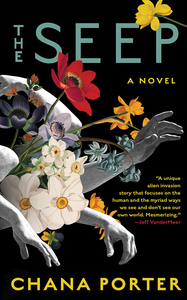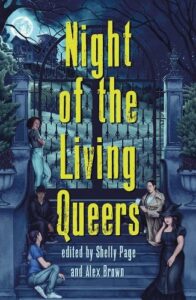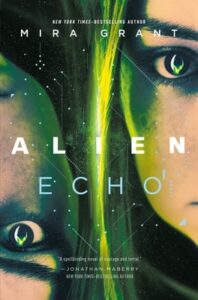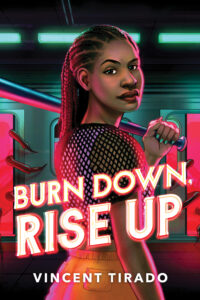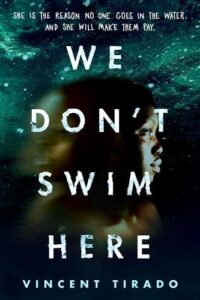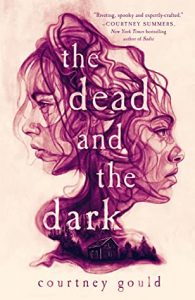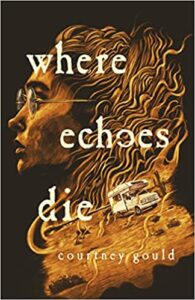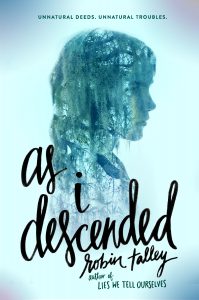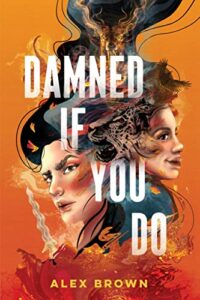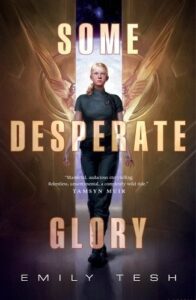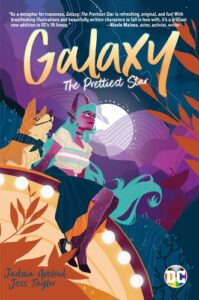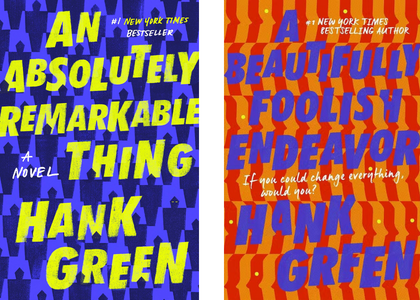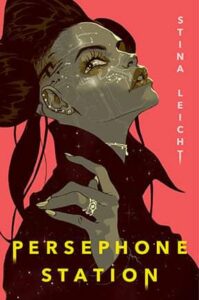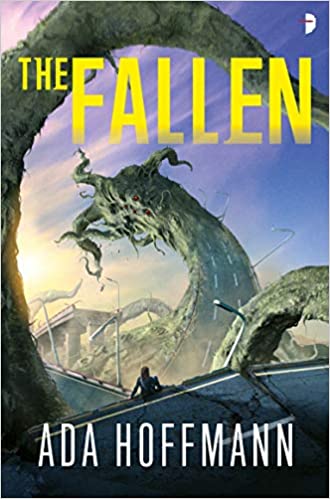Buy this from Bookshop.org to support local bookstores and the Lesbrary!
On October 14, 2018, transgender actor and activist Nicole Maines made history by appearing as Nia Nal/Dreamer, the first transgender superhero on TV, in Supergirl. She has since gone on to pen Dreamer’s comic debut in the DC Pride #1 in 2021 and Dreamer’s mainline DC continuity debut in Superman: Son of Kal-El #13 in 2022. This year, Nicole and artist Rye Hickman teamed up to create the YA graphic novel Bad Dream: A Dreamer Story. This graphic novel provides a beautiful and moving origin story for Nia Nal that will resonate with queer readers of any age.
Teen Nia Nal spends most of her free time alone reading and drawing superhero costumes. She’s always idolized her mom, a former powerful seer from the planet of Naltor who relocated to Earth to raise a family, and supported her sister, who has been training to inherit her mother’s powers. When a freak dodgeball accident awakens Nia’s precognition powers, Nia is shocked. Her sister, as the sole AFAB child, should be inheriting the powers. Worried about what her mother and sister will think, she runs away to Metropolis. It’s there that she meets Taylor Barzelay, another transgender superhero (main character of Galaxy: The Prettiest Star), her girlfriend, and an entire community of queer people and aliens. She begins to feel like she can find a home in this supportive community of people like her. However, events will soon force her home and into a confrontation that will force her to reckon with her new powers and the responsibilities they entail.
Nicole Maines and Rye Hickman do such a great job creating a story that reflects the very real painful and hopeful experiences that so many queer people go through. Through fantastic writing and evocative artwork, readers are made to feel Nia’s pain at being ostracized by the people in her hometown because she is transgender. We can feel the guilt she carries for, as she sees it, causing problems for her mother and her sister. These are things that so many queer people have gone through in their own lives. Queer readers will relate to all of these feelings so much and empathize with Nia, while cis and heterosexual readers will, hopefully, come away with a greater understanding of our experiences.
At the same time, Nicole and Rye infuse so much hope into this book. Through putting Nia into contact with characters like Taylor, her girlfriend Katherine, and their friend Yvette, they show readers that there is always a community to find. They show that no matter how dark it may feel, there is always a light at the end of the tunnel. It’s also a beautiful message about the power of community. It tells readers that haven’t found their community yet to keep looking and those of us who have to keep fighting for it.
Bad Dream: A Dreamer Story is an origin story worthy of this groundbreaking character. Nicole Maines’s writing, coupled with Rye Hickman’s gorgeous art, make this book another fantastic inclusion in DC’s line of graphic novels as well as the wider canon of queer young adult literature.

